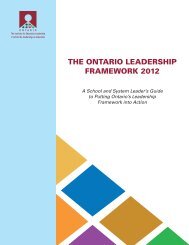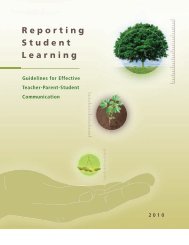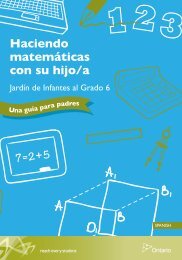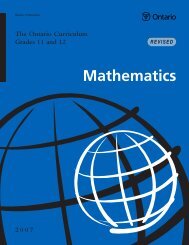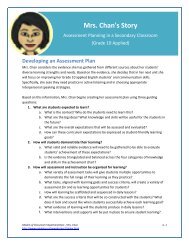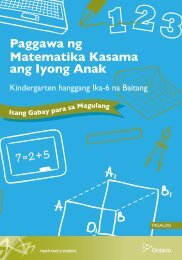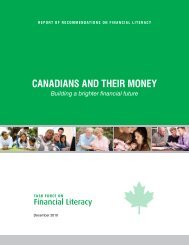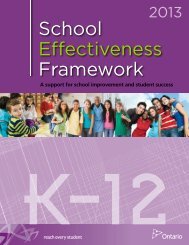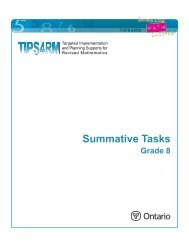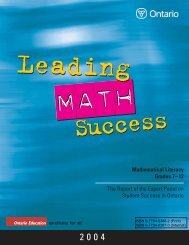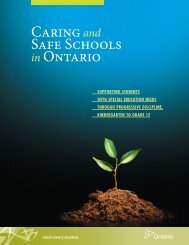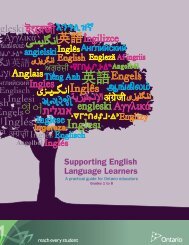Introduction
A Guide to Effective Instruction in Mathematics - eWorkshop
A Guide to Effective Instruction in Mathematics - eWorkshop
Create successful ePaper yourself
Turn your PDF publications into a flip-book with our unique Google optimized e-Paper software.
Independent MathematicsIndependent mathematics is an instructional approach in whichstudents work independently to explore a mathematical concept,practise a skill, or communicate their understanding of a conceptor skill. They work on their own or in a group situation but on anindividual task.Independent mathematics does not imply that students are isolatedfrom all interaction. They need to be made aware that they canrequest the assistance of others (e.g., teachers, classmates) when theyneed it. Independent mathematics capitalizes on students’ ability tofunction as autonomous learners who:• know that they can ask a question;Independent mathematics:• provides opportunities forstudents to develop, consolidate,or apply strategies orskills on their own;• provides opportunities forstudents to make choicesindependently;• allows students to workat their own pace and todevelop independence,perseverance, and selfconfidence;• gives students opportunitiesto demonstrate what theyknow and what they can do.• know whom to address the question to;• know what tools to use (e.g., manipulatives, calculators, computers);• know what resources are available (e.g., math word wall, strategy wall,bulletin-board display, math dictionary).All independent work begins with an introduction to the task. Students initially need toclarify their understanding of the mathematics and of the requirements of the independenttask. In the performance of the task, students need time to grapple with the problemon their own, to consolidate ideas for and by themselves. Time constraints that putundue pressure on students may lead to anxiety and prevent students from demonstratingthe full range of their understanding. It is important that teachers allow all studentssufficient time to complete a task, taking into account their level of development andlearning style and the complexity of the task.FORMS OF INDEPENDENT MATHEMATICSIndependent mathematics may occur at various times and not just at the end of thelesson or unit. Independent mathematics may include practising a mathematicalskill, journal writing, working on a problem, explaining an idea to the teacher or apeer, playing an independent game, working alone at the computer, reading math literature,writing a problem, or using manipulatives or technology to gain a bettergrasp of a key concept. Reflection, discussion, or sharing occurs to bring closure andclarification of the key mathematical concepts. Independent work needs to be viewedas an opportunity for autonomous learning rather than as an evaluation task.Instructional Approaches 71




